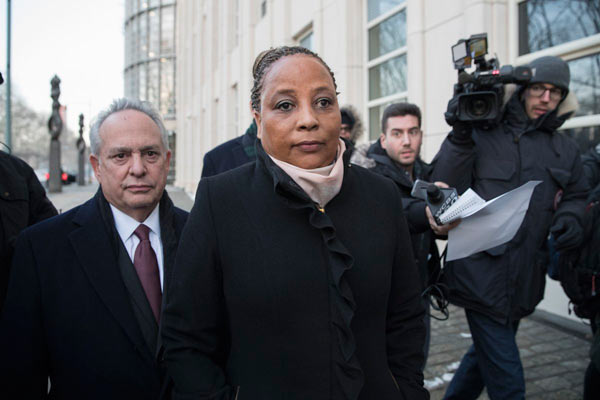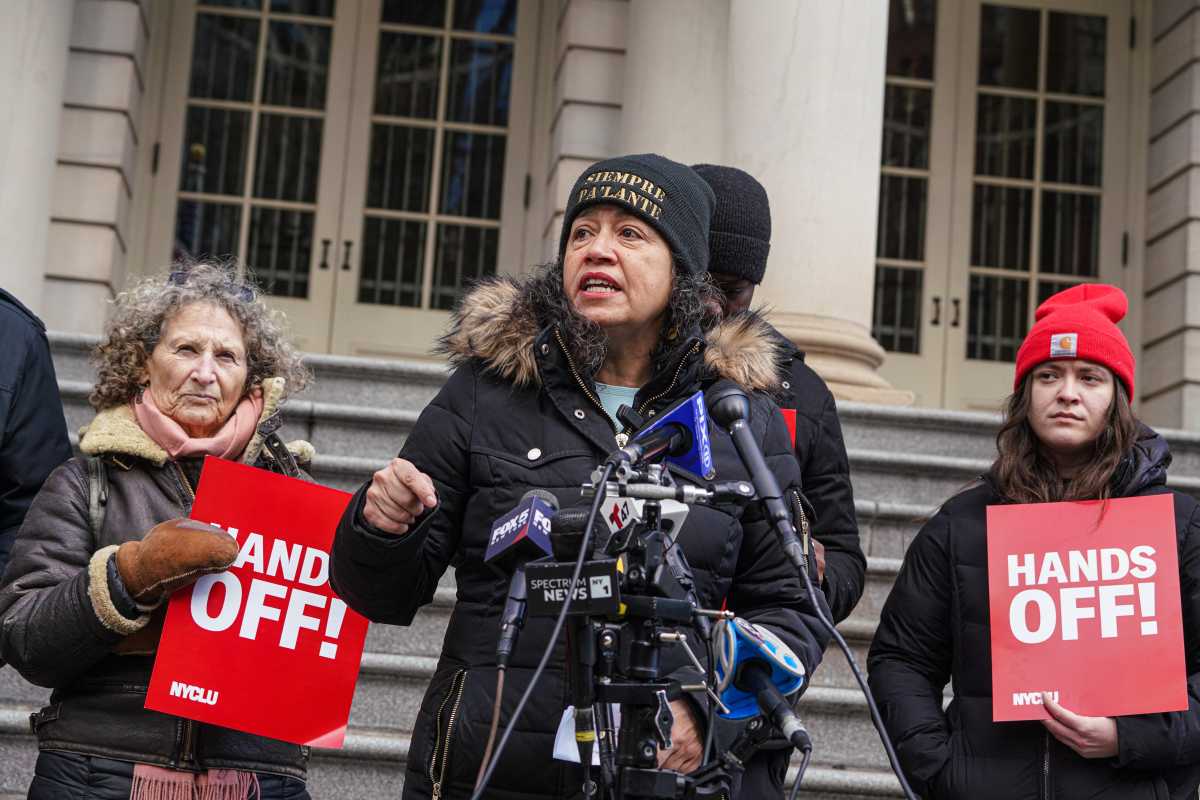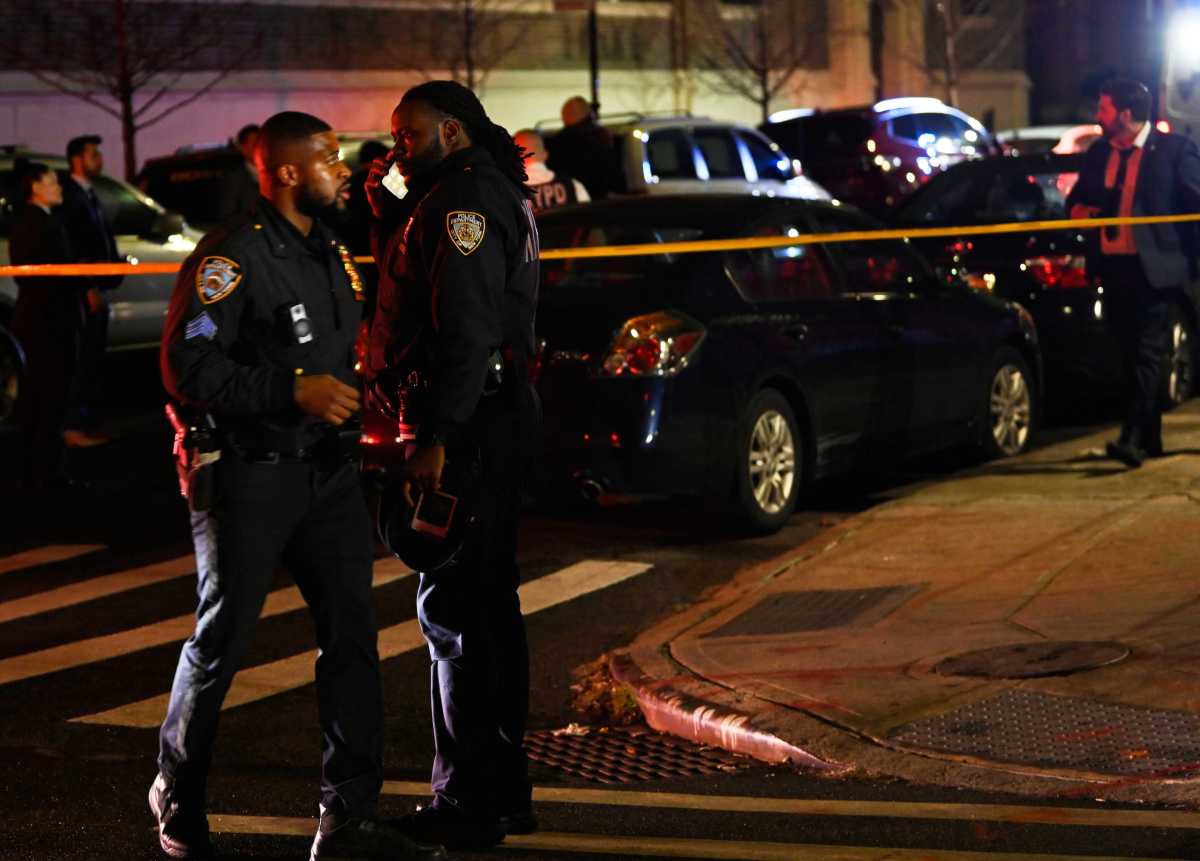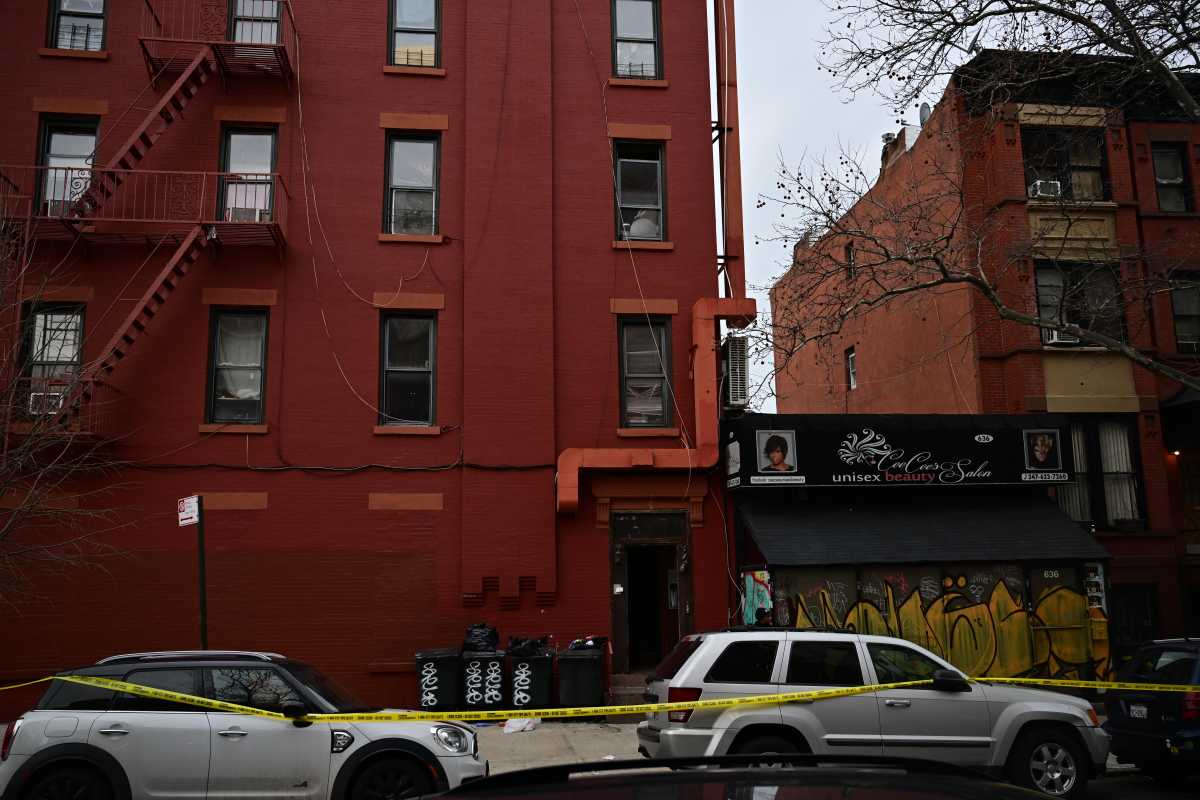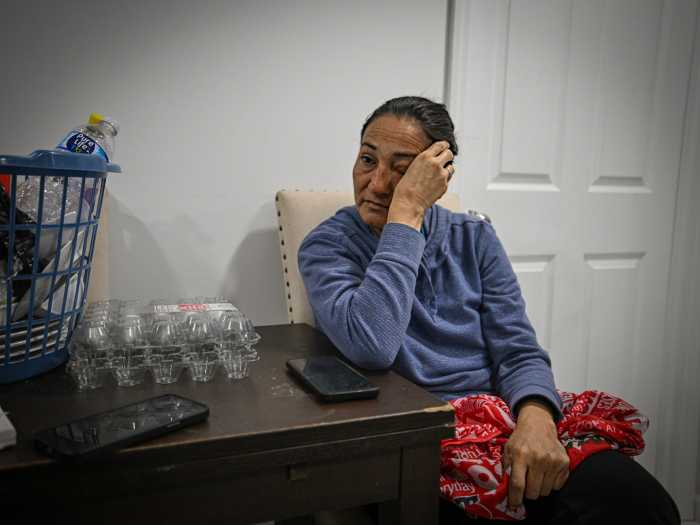Embattled Assemblywoman Pamela Harris resigned from her post on April 2, nearly three months to the day after the Feds charged her with stealing thousands of dollars from the city and federal storm-recovery agencies.
Harris (D–Coney Island) announced her resignation in a letter to Assembly Speaker Carl Heastie, writing that it had been a “privilege” to serve in the Assembly but that she had to devote her time to dealing with the charges against her, and that she hoped her successor would be named soon.
“Unfortunately, recent events interfere with my ability to continue to effectively represent my constituents, and they deserve full-time attention,” Harris wrote. “I am hopeful that my successor will be chosen in the near future so that my District’s constituents will be represented.”
But the timing of Harris’s resignation ensures that the district will be unrepresented until after the November 6 election, since she announced her resignation nearly two months after the nomination date for the April 24 special elections, which would have temporarily filled the seat until the fall election. However, one election expert who is not involved with the Harris campaign or the election said the timing of Harris’s resignation will ensure that the election of her replacement will be up to her constituents, since special election challengers are handpicked by party bosses rather than through primaries.
“Most of the time, people resign from office so they can effectively help the political bosses pick their next successors — special elections tend to favor political bosses and rob the people of democracy,” said Hank Sheinkopf, who has worked with Democratic pols including former President Bill Clinton and runs Sheinkopf Communications, a political public-relations firm. “Here’s a case where at least there is an election to pick the successor to an elected official in trouble. It’ll be a primary and general election where voters can actually have a choice.”
Harris herself came to power in a special election in November 2015, three months after the sudden resignation of Alec Broc-Krasny, who was indicted last year for his alleged role in an illegal scheme to funnel millions of narcotic painkillers onto the black market and rip off the healthcare system. The following year, Harris defeated Republican challenger Lucretia Regina-Potter in the regular election with nearly 57 percent of the vote.
Regina-Potter told this paper that it was unfortunate that the district was plagued with yet another pol caught up in allegations of illegal activity, and floated the idea that Harris may have delayed her resignation until after the state budget passed in order to funnel more money to local organizations connected to her.
“It’s sad that this had to happen to our beleaguered 46th District — this is the second assembly member in a row that had to resign,” she said. “It should’ve been a long time ago that she resigned. The timing was a little convenient too, right after the budget — how much money did the 46th District get, and was it allocated already, or is it going to be allocated to certain groups that the former assemblywoman was partial to?”
Harris’s lawyer confirmed to this paper that the former assemblywoman specifically waited to resign in order to vote on the budget to secure funds for the district.
“Now that Assemblywoman Harris has fulfilled her important obligation to her constituents and voted on the state budget, she has resigned to fully address her pending case,” Jerry Goldfeder said.
Lucretia-Potter said she wouldn’t rule out running for the seat, but Sheinkopf said a Black candidate would have the best shot running in the diverse district if enough of the population turned out to vote.
“Candidates who represent each of the ethnic and racial factions will appear, but the Blacks will be important, especially if there’s sufficient anger among the Black population over the New York City Housing Authority and the Coney Island rezoning, and Blacks turn out,” he said. “A single Black candidate can probably win against everybody else.”
Sheinkopf added that some political operatives may see the seat as a stepping stone to higher office — including borough president — due to the district’s diversity, but that the important point is the fact that locals would elect Harris’s successor in a fair process.
“This will be seen by some as an indication of who has political strength to run for borough president, as well,” he said. “But what is significant here is that there will be democracy — you’ll have an election without a fix, and the public will get a choice.”
Harris could face several decades in jail if convicted on all charges, with 30 years just for the top charge of lying to the Federal Emergency Management Agency. Her trial is set to begin in July, according to the New York Times.
Heastie’s communications director Michael Whyland told this paper that at least one of Harris’ss district offices in Bay Ridge or Coney Island would remain open and staffed until the seat is filled to ensure Harris’s constituents receive services, but said he did not yet have details on which office would be staffed or by whom.


